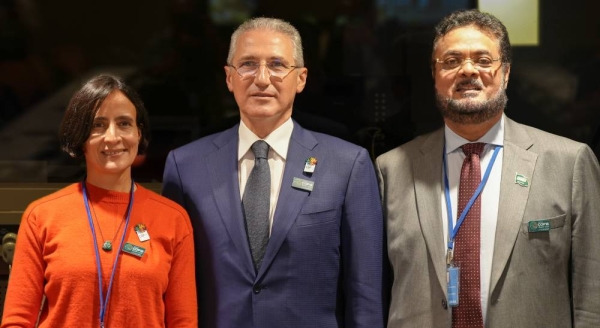The 2024 UN General Assembly brought together the incoming Presidents of the three Rio Conventions – Saudi Arabia, Colombia, and Azerbaijan. These three countries will preside over key UN environmental conventions in the final quarter of 2024. The Rio Trio Initiative aims to promote collaboration between the UNFCCC, CBD, and UNCCD, established during the 1992 Earth Summit in Rio de Janeiro. Saudi Arabia’s Deputy Minister of Environment, Water and Agriculture, Dr. Osama Faqeeha, emphasized the interconnected nature of environmental challenges, including land degradation, biodiversity loss, and climate change. Colombia’s Minister of Environment, Susana Muhamad, stressed the need for a unified approach to combat environmental degradation, while Azerbaijan’s Minister of Ecology, Mukhtar Babayev, highlighted the importance of leveraging synergies between the conventions.
The Rio Trio Initiative seeks to address the global environmental challenges of climate change, biodiversity loss, and land degradation by fostering collaboration between the UNFCCC, CBD, and UNCCD. Saudi Arabia’s Deputy Minister of Environment, Water and Agriculture, Dr. Osama Faqeeha, highlighted the severe consequences of land degradation on biodiversity, greenhouse gas emissions, and food and water security. He emphasized the importance of uniting with Azerbaijan and Colombia to rally the international community to address these interrelated challenges. Colombia’s Minister of Environment, Susana Muhamad, echoed the call for a unified approach and emphasized the need for an integrated agenda to combat environmental degradation. Azerbaijan’s Minister of Ecology, Mukhtar Babayev, stressed the importance of leveraging synergies between the three conventions to drive tangible outcomes.
As the incoming UNCCD COP16 president, Saudi Arabia has set an ambitious goal to restore 1.5 billion hectares of degraded land by 2030. The country is urging the international community to commit to concrete pledges at the upcoming COP16 in Riyadh. The Rio Trio Initiative aims to unite the efforts of Saudi Arabia, Colombia, and Azerbaijan to tackle global environmental challenges collectively. By fostering collaboration between the UNFCCC, CBD, and UNCCD, these countries are working towards addressing climate change, biodiversity loss, and land degradation. Saudi Arabia’s ambitious goal to restore degraded land by 2030 demonstrates the country’s commitment to environmental conservation and sustainability.
The Rio Trio Initiative, bringing together the incoming Presidents of the three Rio Conventions during the UN General Assembly, aims to promote collaboration between the UNFCCC, CBD, and UNCCD. These conventions were established during the 1992 Earth Summit in Rio de Janeiro to address climate change, biodiversity loss, and land degradation. Saudi Arabia’s Deputy Minister of Environment, Water and Agriculture, Dr. Osama Faqeeha, highlighted the interconnected nature of environmental challenges, emphasizing the severe consequences of land degradation on biodiversity, greenhouse gas emissions, and food and water security. Colombia’s Minister of Environment, Susana Muhamad, and Azerbaijan’s Minister of Ecology, Mukhtar Babayev, also stressed the importance of a unified approach and leveraging synergies between the conventions to drive tangible outcomes.
The Rio Trio Initiative aims to foster collaboration between the UNFCCC, CBD, and UNCCD to address global environmental challenges. Saudi Arabia, Colombia, and Azerbaijan will preside over key UN environmental conventions in the final quarter of 2024. Saudi Arabia’s Deputy Minister of Environment, Water and Agriculture, Dr. Osama Faqeeha, highlighted the interconnected nature of environmental challenges, emphasizing the severe consequences of land degradation on biodiversity, greenhouse gas emissions, and food and water security. Colombia’s Minister of Environment, Susana Muhamad, echoed the call for a unified approach, while Azerbaijan’s Minister of Ecology, Mukhtar Babayev, stressed the importance of leveraging synergies between the conventions to drive tangible outcomes. Saudi Arabia’s ambitious goal to restore degraded land by 2030 demonstrates the country’s commitment to environmental conservation and sustainability.










